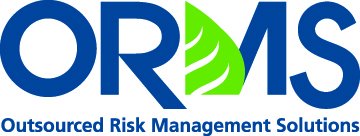SBA Offers Historic Relief to Businesses Suffering During COVID-19 Crisis
A Handshake from Six Feet Away
March 20, 2020Outsource Your Risk Management to Serve Your Borrowers Better
April 22, 2020SBA Offers Historic Relief to Businesses Suffering During COVID-19 Crisis
U.S. businesses are facing a devastating level of uncertainty and loss of income during the current coronavirus (COVID-19) crisis. According to a survey by BlueVine Capital, 41% of small- and medium-sized businesses anticipate folding in the next month without government support. Nearly a quarter (22%) may shut their doors in as soon as two weeks.
But help is on the way. Thanks to three federal stimulus measures quickly passed by Congress and signed by the President, including the historically massive $2 trillion Coronavirus Aid, Relief, and Economic Security (CARES) Act, many small businesses and other employers have access to a wide range of low-interest loan and grant programs through the U.S. Small Business Administration (SBA). Here’s a summary of the key disaster relief programs administered through the SBA:
- Economic Injury Disaster (EID) Loans: The SBA is offering low-interest federal disaster loans for working capital to small businesses suffering substantial economic injury as a result of COVID-19. Eligible businesses include those with 500 employees or less, as well as individuals operating under a sole proprietorship, with or without employees, or as an independent contractor. Non-profit organizations are also eligible.
Loans up to $2 million are available to businesses in all U.S. states and territories, with a maximum unsecured amount of $25,000. Interest rates are 3.75% for qualified small businesses, and 2.75% for non-profits, with terms extending up to 30 years. Loans must be used for working capital, paying fixed debts, payroll, accounts payable, or other bills that could have been paid if the disaster had not occurred. The loans are not intended to replace lost sales or profits, or for expansion. The first payment is due on the 12th month following loan closing.
- EID Advance Loans: The SBA is also accepting applications for Economic Injury Disaster Loan advances up to $10,000. Intended to provide economic relief to businesses that are experiencing a temporary loss of revenue, funds will be made available within three days of a successful application. These loan advances will not have to be repaid.
- Paycheck Protection Program (PPP): The CARES Act, which was signed by the President on Friday, March 27, 2020, includes $349 billion in funds for the Paycheck Protection Program, which will provide low-interest loans up to $10 million for qualifying businesses. Unlike the EID Loan program, the PPP is designed as a public-private partnership, with private lenders, banks, and credit unions administering all applications, loan processing, and disbursements.
PPP loans will have a 0.5% interest rate and maturity of 2 years, with the first payment deferred for six months. The loans will be 100% SBA guaranteed and will require no collateral, no personal guarantees, and no borrower or lender fees payable to the SBA.
Lastly, the portion of the loan used for payroll and other designated expenses in the eight weeks following origination will be forgivable (note that the SBA is saying that, based on high anticipated demand, no more than 25% of the forgiven amount may be for non-payroll costs).
- SBA Disaster Loan Deferments: The SBA has also announced that payments for all previous disaster loans for homeowners and businesses will be automatically deferred through the end of 2020 due to the coronavirus emergency. Borrowers do not have to contact the SBA to request a deferment.
It’s important for lenders to get comfortable with these rapid-fire developments, even those programs that require businesses to apply directly through the SBA, so that you can best guide your business customers and members during this difficult time. And there is likely more to come. Congress is already chattering about the need for a fourth stimulus bill to help carry the country forward for as long as the pandemic crisis lasts.
More information on all coronavirus disaster assistance programs can be found on the SBA’s website.
As you will likely be swamped with calls from your business borrowers in the coming weeks and months, it’s a great time to consider outsourcing some of your non-customer facing functions, like risk management, environmental due diligence, and appraisal processes. Don’t hesitate to contact us at ORMS, LLC for help, so you can focus on your business borrowers in their time of need.

